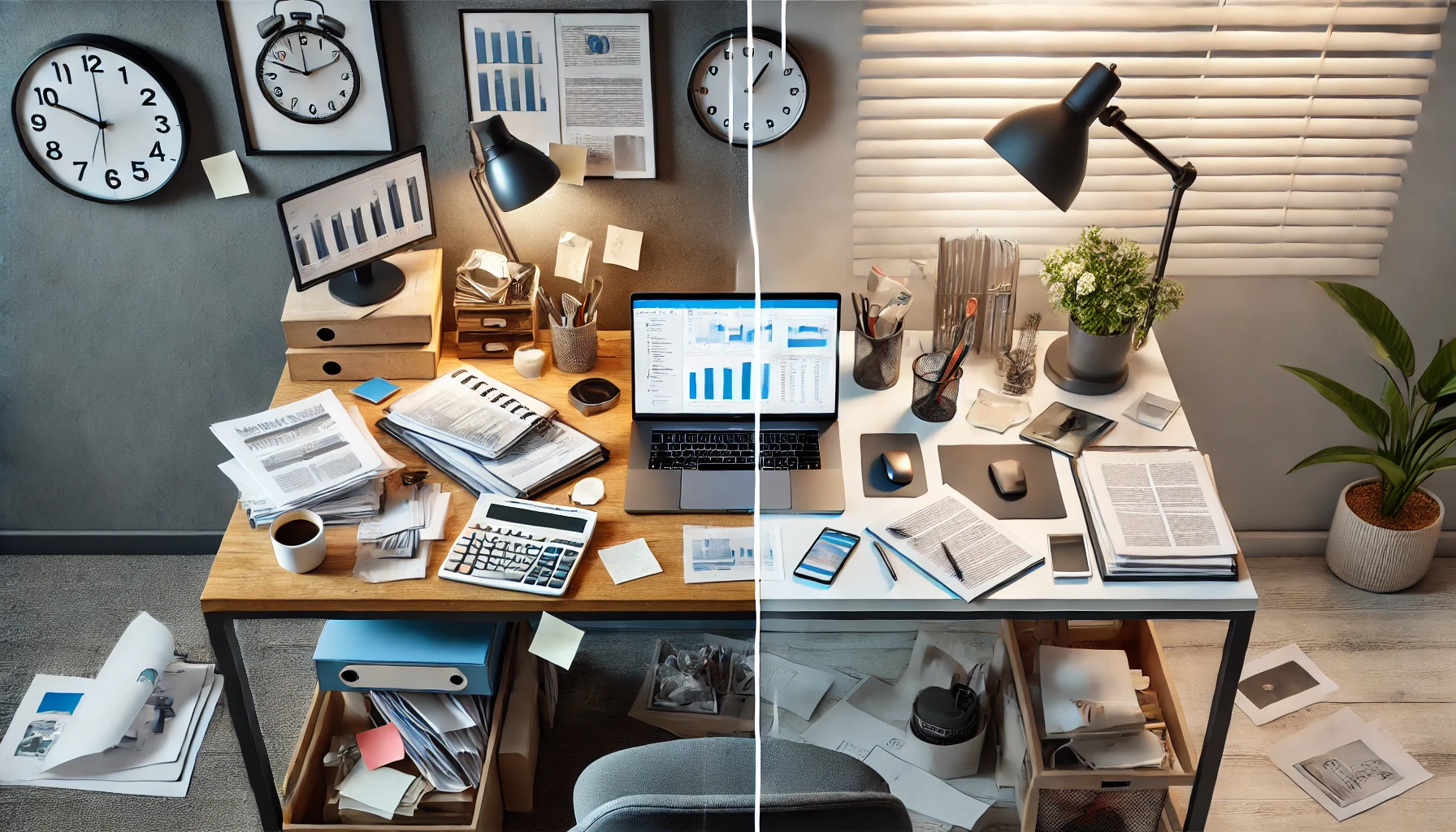The Myth of Multitasking
Many people believe multitasking is an efficient way to get more done. However, studies show that multitasking reduces productivity by up to 40%. Instead of handling multiple tasks simultaneously, the brain rapidly switches between them, leading to:
✔ Increased errors
✔ Reduced focus
✔ Higher mental fatigue
The Science Behind Monotasking
Monotasking (also called single-tasking) is the practice of focusing on one task at a time until completion. Research shows that deep focus leads to better quality work, improved efficiency, and less stress.
Why Monotasking is More Effective
1. Improves Focus and Deep Work
When you focus on one task, your brain enters a flow state, where work becomes easier and faster. This leads to higher-quality results with less mental effort.
2. Reduces Errors and Enhances Accuracy
Switching between tasks increases mistakes. Monotasking helps you work more carefully and precisely, reducing rework.
3. Decreases Stress and Mental Overload
Juggling multiple tasks overwhelms the brain. Monotasking prevents burnout by allowing you to stay present and engaged in one thing at a time.
When is Multitasking Useful?
While multitasking often reduces efficiency, it can be helpful in certain situations, such as:
✔ Pairing simple tasks with automatic activities (e.g., listening to a podcast while exercising).
✔ Handling routine or repetitive tasks (e.g., answering emails while waiting in line).
The key is to only multitask when one task requires minimal mental effort.
How to Train Your Brain for Monotasking
1. Use Time Blocking
Schedule dedicated time slots for specific tasks. For example, set 90-minute deep work sessions with no interruptions.
2. Remove Distractions
✔ Turn off notifications
✔ Close unnecessary tabs
✔ Use noise-canceling headphones if needed
3. Take Intentional Breaks
Monotasking works best when combined with breaks. Use the Pomodoro Technique (work for 25–50 minutes, then take a short break) to refresh your mind and maintain focus.
Final Thoughts
While multitasking might seem efficient, it often lowers productivity and increases stress. Monotasking, on the other hand, allows for better focus, higher accuracy, and deeper work. Try switching to a single-tasking approach and see how it transforms your efficiency!


